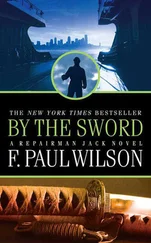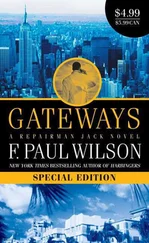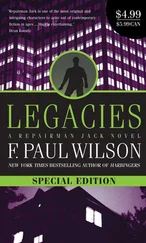The engines were warm. Time to get the crew.
The dozen or so rakoshi he had been training to run the ship had been doing well, but he wanted to keep them sharp. He wanted to be able to take his ship to sea on short notice. Hopefully that necessity would not arise, but the events of the past few days had made him wary of taking anything for granted. Tonight had only compounded his unease.
His mood was grim as he left the engine room. Again the Mother and her youngling had returned empty-handed. That meant only one thing. Jack had tried the elixir again and Kolabati had been there to protect him… with her body.
The thought filled Kusum with despair. Kolabati was destroying herself. She had spent too much time among westerners. She had already absorbed too many of their habits of dress. What other foul habits had she picked up? He had to find a way to save her from herself.
But not tonight. He had his own personal concerns: His evening prayers had been said; he had made his thrice-daily offering of water and sesame… He would make an offering more to the Goddess's taste tomorrow night. Now he was ready for work. There would be no punishment for the rakoshi tonight, only work.
Kusum picked up his whip from where he had left it on the deck and rapped the handle on the hatch that led to the main hold. The Mother and the younglings that made up the crew would be waiting on the other side. The sound of the engines was their signal to be ready. He released the rakoshi. As the dark, rangy forms swarmed up the steps to the deck, he re-locked the hatch and headed for the wheelhouse.
Kusum stood before his controls. The green-on-black CRTs with their flickering graphs and read-outs would have been more at home on a lunar lander than on this old rustbucket. But they were familiar to Kusum by now. During his stay in London he had had most of the ship's functions computerized, including navigation and steering. Once on the open sea, he could set a destination, phase in the computer, and tend to other business. The computer would choose the best course along the standard shipping lanes and leave him sixty miles off the coast of his target destination, disturbing him during the course of the voyage only if other vessels came within a designated proximity.
And it all worked. In its test run across the Atlantic—with a full human crew as back-up and the rakoshi towed behind in a barge—there had not been a single hitch.
But the system was useful only on the open sea. No computer was going to get him out of New York Harbor. It could help, but Kusum would have to do most of the work—without the aid of a tug or a pilot. Which was illegal, of course, but he could not risk allowing anyone, even a harbor pilot, aboard his ship. He was sure if he timed his departure carefully he could reach international waters before anyone could stop him. But should the Harbor Patrol or the Coast Guard pull alongside and try to board, Kusum would have his own boarding party ready.
The drills were important to him; they gave him peace of mind. Should something go awry, should his freighter's living cargo somehow be discovered, he needed to know he could leave on short notice. And so he ran the rakoshi through their paces regularly, lest they forget.
The river was dark and still, the wharf deserted. Kusum checked his instruments. All was ready for tonight's drill. A single blink of the running lights and the rakoshi leaped into action, loosening and untying the mooring ropes and cables. They were agile and tireless. They could leap to the wharf from the gunwales, cast off the ropes from the pilings, and then climb up those same ropes back to the ship. If one happened to fall in, it was of little consequence. They were quite at home in the water. After all, they had swum behind the ship after their barge had been cut loose off Staten Island and had climbed aboard after it had docked and been cleared by customs.
Within minutes, the Mother scrambled to the center of the forward hatch cover. This was the signal that all ropes were clear. Kusum threw the engines into reverse. The twin screws below began to pull the prow away from the pier. The computer aided Kusum in making tiny corrections for tidal drift, but most of the burden of the task was directly on his shoulders. With a larger freighter, such a maneuver would have been impossible. But with this particular vessel, equipped as it was and with Kusum at the wheel, it could be done. It had taken Kusum many tries over the months, many crunches against the wharf and one or two nerve-shattering moments when he thought he had lost all control over the vessel, before he had become competent. Now it was routine.
The ship backed toward New Jersey until it was clear of the wharf. Leaving the starboard engine in reverse, Kusum threw the port engine into neutral, and then into forward. The ship began to turn south. Kusum had searched long and hard to find this ship—few freighters this size had twin screws. But his patience had paid off. He now had a ship that could turn three hundred and sixty degrees within its own length.
When the prow had swung ninety degrees and was pointing toward the Battery, Kusum idled the engines. Had it been time to leave, he would have thrown both into forward and headed for the Narrows and the Atlantic Ocean beyond. If only he could! If only his duty here were done! Reluctantly, he put the starboard into forward and the port into reverse. The nose swung back toward the dock. Then it was alternating forward and reverse for both until the ship eased back into its slip. Two blinks of the running lights and the rakoshi were leaping to the pier and securing the ship in place.
Kusum allowed himself a smile of satisfaction. Yes, they were ready. It wouldn't be long before they left this obscene land forever. Kusum would see to it that the rakoshi did not return empty-handed tomorrow night.
West Bengal, India
Saturday, July 25, 1857
People were going to die today. Of that Sir Albert Westphalen had no doubt.
And he might be one of them.
Here, high up on this ledge, with the morning sun on his back, with the mythical Temple-in-the-Hills and its walled courtyard spread out below him, he wondered at his ability to carry his plans through to completion. The abstract scheme that had seemed so simple and direct in his office in Bharangpur had become something quite different in these forbidding hills under the cold light of dawn.
His heart ground against his sternum as he lay on his belly and peered at the temple through his field glasses. He must have been daft to think this would work! How deep and cold was his desperation that it could lead him to this? Was he willing to risk his own death to save the family name?
Westphalen glanced down at his men, all busy checking their gear and mounts. With their stubbly faces, their rumpled uniforms caked with dirt, dried sweat, and rain, they certainly didn't look like Her Majesty's finest this morning. They seemed not to notice, however. And well they might not, for Westphalen knew how these men lived—like animals in cramped quarters with a score and ten of their fellows, sleeping on canvas sheets changed once a month and eating and washing out of the same tin pot. Barracks life brutalized the best of them, and when there was no enemy to fight they fought each other. The only thing they loved more than battle, was liquor, and even now, when they should have been fortifying themselves with food, they were passing a bottle of raw spirits spiked with chopped capsicum. He could find no trace of his own disquiet in their faces; only anticipation of the battle and looting to come.
Despite the growing warmth of the sun, he shivered—the after-effect of a sleepless night spent huddled away from the rain under a rocky overhang, or simple fear of what was to come? He had certainly had his fill of fear last night. While the men had slept fitfully, he had remained awake, sure that there were wild things skulking about in the darkness beyond the small fire they had built. Occasionally he had glimpsed yellow glints of light in the dark, like pairs of fireflies. The horses, too, must have sensed something, for they were skittish all night.
Читать дальше











